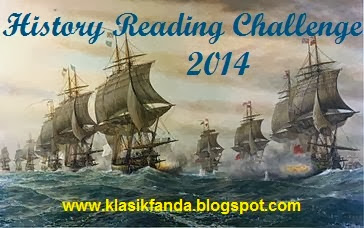Well, it’s time for an update on my History Reading Challenge hosted by Fanda at Fanda Classiclit. As much as I would rather plow along than muse over what I’ve read these past 4 months, I realize that a retrospective look at my reads is a valuable way to gauge if I’m on track or behind my goals. As it stands, I haven’t finished anything yet, but I am making progress.
I am about 40% through Susan Wise Bauer’s The History of the Ancient World. I had originally made it a buddy read AND created a schedule so I could finish it by the end of June. As it stands I am behind in the schedule, so I would have to step it up to finish in time. However, I am making notes with each chapter so that slows my progress. I may drop this extra task for now so I can keep moving along. Needless to say, my buddy, who will remain nameless, is even more behind than I am.
I’m interested in what methods other readers use to keep themselves on task with a book that, while it is not a chore, may not be as attractive as their other reads …..?? Scheduling, willpower, what ….?
I’ve also begun Red Land, Black Land by the author of the famed Amelia Peabody Egyptian mystery series. I’m only 5% into this one, but so far it’s quite interesting. I’m building my knowledge on some on the information that I’ve gleaned from The History of the Ancient World so I’m not having to think as hard to place some of the historical characters. I am finding the structure of Mertz’s writing somewhat disorganized, or perhaps I should say not as well organized as I would have expected. It doesn’t take away from the joy of reading her history, but it does make it sometimes a little harder to follow her train of thought.
Cicero’s Defense Speeches is so far my favourite of all my history reads. Cicero’s rhetoric is not only brilliant, but fascinating to read. My favourite speech, as yet, is Pro Roscio Amerino (For Roscius of Ameria) which presents Cicero as a young 26 year old giving his first speech for the defense in a criminal court. This speech definitely has a different flavour to the other speeches; he takes more risks and is even a little cheeky whereas the speeches from when he is a well-know orator are more carefully contrived. I wish this book was required reading for all upper high schools students to expose them to some excellent rhetoric and logic. It’s certainly impressive. I’m 33% through this book and can’t wait to read more.
I don’t have any other history books “up next”; I’ll simply try to focus on these three so I will eventually be able to finally say that I’ve finished something!













